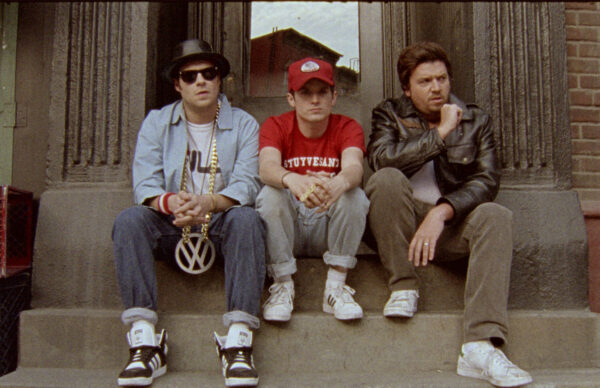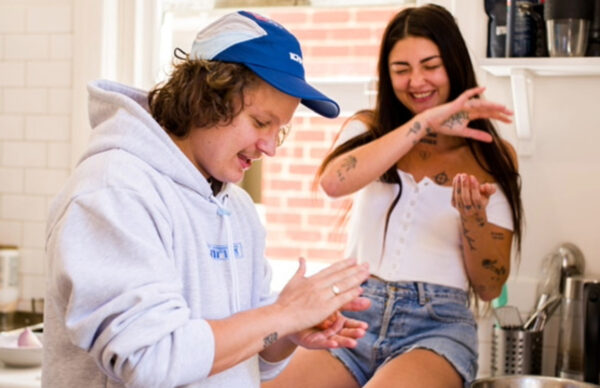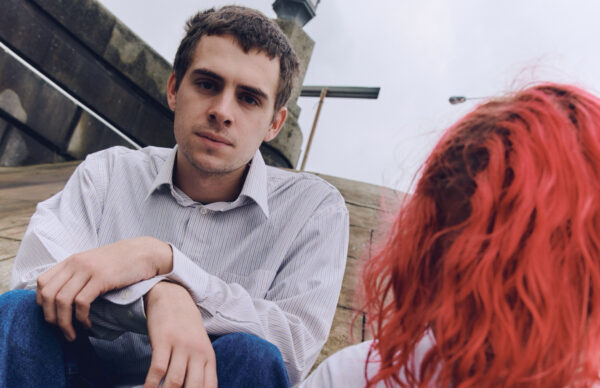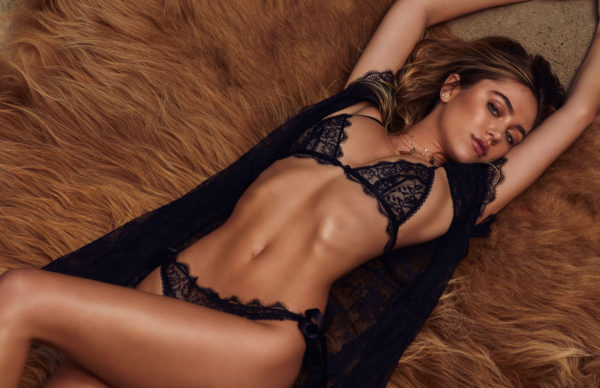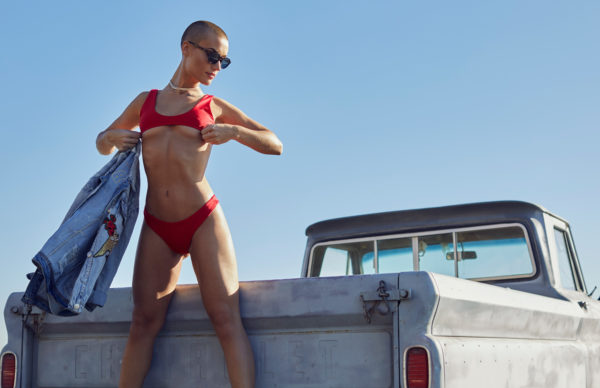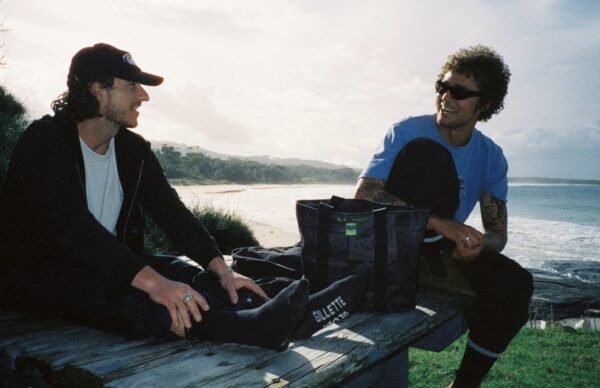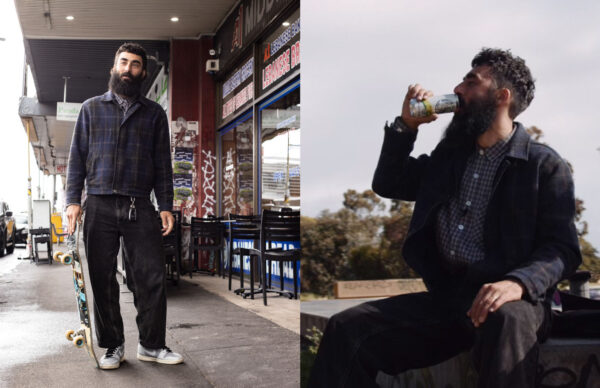Image by Ben Thouard //
How do you make a film like RISS? We sat down with the director to find out what goes into making one of the most unique surf films we’ve ever come across.
When watching Red Bull’s latest film, which follows the story of Hawaiin surfer Carissa Moore on her quest for her fourth WSL Championship, you quickly get the impression that it’s not your regular surf flick. Quirky narration, fantastical sequences and the incorporation of mixed media all add to Carissa’s pic journey, with the film’s 40-minute run time, coming and going in what seems like a five-minute short film that leaves you asking what the fuck did I just watch?
Stylistically RISS is in a league of its own, with director Peter Hamblin crafting something that shows us who Carissa is, whilst also making there are no slow points throughout. And, with the film set for release tomorrow on Red Bull TV, we thought we’d get his story on what went into crafting this special film.
Check it out our interview below and head here to watch the full film – you wont regret it!
https://www.youtube.com/watch?v=qrRURlujqdo
‘RISS’ is like no other “surf film” we’ve ever seen. Was there a moment when you realised that this style of storytelling could be applied to her story?
I didn’t know Riss at all before starting to work with her. I reached out to her probably about two years ago now saying that I would be interested to connect and possibly do something together. And then when I met her, and I hung out with her, I really got kind of consumed by her story and I just thought she was such an incredible person and she’s just so friendly and the whole process of getting to know her was so much fun.
From a style perspective, I’ve got a quite a mixed media style as it is but when I was hanging out with her in Hawaii, she told me that she actually, in her downtime, she does a lot of scrap booking and for a 20-something-year-old, to be doing a scrapbook, I thought that was pretty funny but then actually I looked into her different scrapbooks and they were incredible and it’s almost how she processes her year. I thought that was an awesome mechanic and treatment that we could apply to a film with her because scrapbooking is so mixed media and that’s exactly where we got the inspiration from.
I wanted to put an element of guess work into what we do. I think too often, people sit down and watch the surf and, yes, beautiful waves but it’s the same story and we’re almost bored from the outset because we can predict what’s going to happen and I think the style of storytelling allows it not to be predictable and keeps you entertained and keeps you on the edge of your seat.
It feels like you spent a lot of time with Carissa, how long did it take you to bring it all together?
We did two trips together. I went over to Hawaii, spent about two weeks with her in Hawaii, and then spent some time with her on a trip to Tahiti and then a lot of the rest of the time was FaceTiming and really just getting to know who Carissa is.
The actual shoot time with her was actually very limited because she was on the world tour and when she’s on tour and she’s pulled in a million directions so you don’t want to be that person who’s constantly there with a camera. I think per each event, I probably hung out with her for one day at each event and then I was just a fly on the wall in the background when it was comp time or when she was training and stuff like that, often with her not even knowing I was there.
It wasn’t a case of just filming everything. I think that’s an important point and, for me, going into these stories and making films, it’s about having a very clear concept and then scripting that down and understanding what I’m doing and that allows me to spend minimal time with her to capture what I really want to capture as opposed to, I think, a lot of documentary film makers will just go and capture everything and then try and figure it out at the end. The prep and the pre production is so important to me.
It was obviously such a huge project, what were the major challenges with bringing it all together?
It was such a simple process to me. Red Bull were gracious enough to give us some initial seeding budget and then it just … Carissa was very easy to work with. She was very accommodating. There were no major challenges in the process. I think the biggest challenge that’s come is obviously with COVID-19. I make films so that we can showcase them and I can sit in the cinema and do screenings and watch people enjoy our films and the fact that that’s been taken away from us, that, I suppose, is the biggest downside to this whole process.
I love watching people watch my films and so when I showed Karissa the film for the first time, I was in a club in Cape Town and she was in Hawaii and I was waiting for her to wake up and she woke up and she’s like, “Oh, I’m ready to watch it.” And I made her FaceTime me throughout the whole film so I could watch her watching my film and that, to me, was the most awesome part of making this film because to see her light up, seeing the film we made for her, was really special.
The narrative is very uplifting, but did you have a backup plan in the event of Carissa having an unsuccessful season?
I think the narrative would’ve still been uplifting even if she didn’t win the World Title and she didn’t become an Olympian because I think the common thread of the story is really her growth as a person and that was something that I noticed massively in the film is that based on her history and what her husband told me and stuff was that if she lost, you didn’t want to talk to Riss for the next couple of days, you didn’t even want to hang out with her because she was in her own mind and her own space and she had to process things.
In Portugal, it was just on the verge of her winning the World Title, everyone expected her to win the World Title in Portugal, and she lost. I think Lakey beat her in the semi finals and she was supposed to be coming to London with me the next day to shoot this big scene, this fairy godmother scene that you see in the film, which is really taking her out of her comfort zone, and I was like, “Oh, well, she’s not going to come now.” And then, I got a message a little bit later saying, “Hey, Pete, I’m really in a low place so I don’t think I’m going to make London.”
And I totally truly understood, everything was on the line there. And so, I sat down to have dinner that night and literally, half an hour later, I got another message from her going, “You know what? Fuck it, this is my dream. I am coming. I am going to come to London. I want to make this film. I’m not going to let this get me down.”
And I think that, to me, defined what this film is because it’s her personal growth, it’s the person she’s wanting to be. She doesn’t want to be defined by the results, she wants to be defined by the good that she does and the love that she puts out there and that was a defining moment for me and I think that’s how the film would’ve ended up.
Shooting with a range of cameras made the film feel like it was always moving. Was this a creative decision as much as it was a mechanical decision?
Totally a creative decision and what I said previously, I think it stems from my boredom. As a filmmaker, I hate repetitive things, I hate doing things twice, but I also think these films need a sense of energy and a sense of movement and a sense of entertainment. We live in a world where we have consumed content so quickly so if you’re going to put a piece out that’s 40 minutes long, you better make sure that you can grab people’s attention and hold that and I think that’s one thing you’ll notice when you do watch the film.
I think too often, just from a technical perspective, DPs and stuff, DPs and filmers and directors put too much emphasis on, “Look, we need to shoot on this camera to get 4K to do this and then we need to make sure that everything matches up.” And there’s almost, not all the time obviously, but sometime there’s too much emphasis on the technical and not enough emphasis on the story and I think the beauty of what this film is I shot on everything, I even shot it on my because it’s less intrusive.
If you rock up with the talent and you’ve got a million cameras and stuff, they’ll immediately go into their shell, but if you’re at a party with them and you suddenly pull out your iPhone, something that is familiar language because everyone shoots selfies, suddenly you get a much more authentic response and that’s where we got the dancing bits and all those little nuggets after she won the French comp.
Was travelling around the world following the WSL as glamorous as it seems?
I’ll tell you what, this is my honest thought, is that I think it’s awesome. I really do. I think it’s amazing and I think the surfers in the World Tour live an incredible life and they’re super fortunate. I do think though that, like anything and like everyone, if you’re doing something repetitively, you take it for granted and I think a lot of the people on the World Tour, I think, tend to take it for granted. They don’t realize how special … Oh, that’s unfair. I’m sure a lot of them realize that it’s very special but I do think there’s a lot of people that do take it for granted.
That being said, is it glamorous? No, it’s a fucking hard world. These people are professional athletes and they have a lot of pressure on them and they live lives, which are dedicated and focused around surfing so it’s not parties and cruisy times. It’s business and it’s work and I think that was the biggest takeout that I got from it, that it is a very specialized world and super competitive.
What aspect of the film are you most excited to share with people?
Just Carissa’s story. That’s really what it is because that’s what this is – Carissa’s story. The thing I’m most excited about is for people to see just that other side of Riss, that we managed to capture. And I suppose from a personal perspective, I want people just to really enjoy it, the process and back to that point earlier of being able to sit there and truly be entertained.
What else is coming up for you filmwise in 2020?
My first scripted short – Hope of Nothing. It’s a really fun project and it is based on the fact that I went to LA recently, about a year ago, and I thought a film project that I was working on was green lit, only to go into the meeting and thought people would say, “Yeah, it would be great to work together in the future.” And that’s just common language in the film world and in what we do.
It’s like going fishing, you throw a million lures into the water and you maybe catch one and I suppose that’s what keeps it exciting. It’s what keeps it exciting in this field is the actual, from a film perspective, well a lot of people and myself have a dream to obviously make incredible films and in America, be it in Britain, be it in South Africa, but to be recognized for our talent and for our films and make incredible films. And that hustle is awesome.
